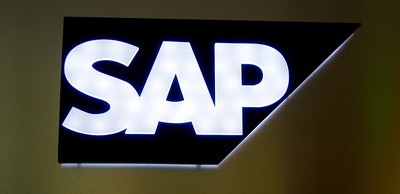SAP, an enterprise software vendor, has crafted a marketing strategy that not only showcases its products but also solidifies its position as a thought leader in the technology and business solutions space. SAP’s marketing approach provides a treasure trove of insights for marketing professionals aiming to elevate their brands. In this article, we explore SAP’s multifaceted marketing strategy, exploring its innovative tactics and how they contribute to its sustained success.
Understanding the SAP Brand
SAP, or Systems, Applications, and Products in Data Processing, was founded in 1972 in Germany. From its inception, SAP has focused on helping companies streamline their operations through robust software solutions. Today, SAP’s offerings span from ERP (Enterprise Resource Planning) systems to cloud solutions, analytics, and more. Its clientele includes some of the world’s largest corporations, making its marketing strategies particularly compelling.

Customer-Centric Approach
At the core of SAP’s marketing strategy is a customer-centric approach. SAP understands that its solutions need to resonate with decision-makers who are often dealing with complex and nuanced business challenges. To address this, SAP positions itself not just as a software provider but as a strategic partner that understands and anticipates customer needs.
One key element of this approach is the extensive use of customer stories and case studies. These narratives highlight real-world applications of SAP’s solutions, demonstrating tangible benefits and ROI. By showcasing how various companies have successfully implemented SAP software to overcome specific challenges, SAP effectively builds credibility and trust among potential customers.
Thought Leadership and Content Marketing
SAP has established itself as a thought leader through a comprehensive content marketing strategy. This involves producing high-quality, insightful content that educates and informs their target audience. SAP’s content spans blogs, whitepapers, eBooks, webinars, and podcasts, all designed to address the pain points and interests of their customers.
One of the standout elements of SAP’s content strategy is the SAP Community Network (SCN). This platform serves as a hub for professionals to share knowledge, ask questions, and collaborate on solutions. By fostering a sense of community and facilitating peer-to-peer interactions, SAP not only disseminates valuable information but also strengthens its relationship with its user base.
Additionally, SAP invests in research and publishes reports on industry trends and future forecasts. These reports are often co-branded with prestigious research firms, adding an extra layer of credibility. This commitment to providing valuable insights helps SAP position itself as a go-to resource for industry knowledge, further enhancing its reputation.
Integrated Digital Marketing Campaigns
In today’s digital-first world, integrated digital marketing campaigns are crucial. SAP excels in this arena by leveraging a mix of SEO, SEM, social media, email marketing, and display advertising to create cohesive and compelling campaigns.
SAP’s website is optimized for search engines, ensuring that potential customers can easily find relevant information. The company also runs targeted ads on platforms like LinkedIn, Google, and industry-specific websites to reach decision-makers at the right time.
Social media is another critical component of SAP’s digital strategy. SAP maintains active profiles on LinkedIn, Twitter, Facebook, and YouTube, where it shares content ranging from product updates to thought leadership articles and customer success stories. By engaging with its audience on these platforms, SAP is able to foster a two-way conversation and build a loyal following.
Email marketing is also a key tactic, with SAP using personalized and segmented email campaigns to nurture leads and keep customers informed about new products, updates, and events. These emails often direct recipients to valuable content, such as webinars and whitepapers, further positioning SAP as a thought leader.
Events and Experiential Marketing
Events have always been a cornerstone of SAP’s marketing strategy. From large-scale conferences like SAP Sapphire Now to more intimate workshops and seminars, these events provide an opportunity for direct engagement with customers and prospects.
SAP Sapphire Now, the company’s flagship event, is a masterclass in experiential marketing. The event features keynote speeches from industry leaders, breakout sessions on a wide range of topics, hands-on product demonstrations, and networking opportunities. By creating an immersive experience, SAP is able to showcase its solutions in action and foster deeper connections with attendees.
In recent years, SAP has also embraced virtual events, especially in response to the COVID-19 pandemic. Virtual events enable SAP to reach a global audience and provide valuable content without the logistical challenges of in-person gatherings. These events are often accompanied by interactive elements such as live Q&A sessions, virtual booths, and downloadable resources, ensuring that they remain engaging and informative.
Partnerships and Ecosystem Development
Another pillar of SAP’s marketing strategy is its focus on partnerships and ecosystem development. SAP has built a vast network of partners, including technology companies, system integrators, and resellers, which helps to expand its reach and enhance its offerings.
Partnerships with other technology giants, such as Microsoft and Google, enable SAP to integrate its solutions with widely used platforms, providing additional value to customers. These collaborations are often highlighted in joint marketing efforts, including co-branded content, webinars, and case studies, demonstrating the combined strengths of the partnerships.
SAP also invests in nurturing its ecosystem of developers and third-party vendors through initiatives like the SAP App Center and the SAP PartnerEdge program. By fostering a vibrant ecosystem, SAP can offer a broader range of solutions and services, catering to the diverse needs of its customer base.
Personalization and Account-Based Marketing
Recognizing that enterprise sales often involve lengthy decision-making processes and multiple stakeholders, SAP has embraced personalization and account-based marketing (ABM) to tailor its approach to individual companies.
SAP’s ABM strategy involves identifying key accounts and developing customized marketing plans to engage with these targets. This often includes personalized content, targeted advertising, and bespoke events designed to address the specific needs and pain points of each account. By focusing on high-value accounts and delivering a tailored experience, SAP is able to build stronger relationships and increase its chances of closing deals.
Leveraging Data and Analytics
In today’s data-driven world, leveraging analytics is crucial for any marketing strategy, and SAP excels in this area. SAP utilizes its own analytics solutions to gain insights into customer behavior, track campaign performance, and optimize its marketing efforts.

By analyzing data from various touchpoints, SAP can identify trends, understand customer preferences, and make data-driven decisions. This not only improves the effectiveness of its marketing campaigns but also ensures that SAP is continuously adapting to the evolving needs of its customers.
SAP’s use of predictive analytics also enables the company to anticipate market trends and customer needs, allowing it to stay ahead of the competition. By leveraging data to inform its strategy, SAP ensures that it remains relevant and responsive in a rapidly changing market.
Sustainability and Corporate Social Responsibility
In recent years, sustainability and corporate social responsibility (CSR) have become increasingly important to consumers and businesses alike. SAP has integrated these values into its marketing strategy, positioning itself as a leader in sustainability and ethical business practices.
SAP’s commitment to sustainability is evident in its efforts to reduce its carbon footprint, promote diversity and inclusion, and support social initiatives. These efforts are highlighted in SAP’s marketing materials, including sustainability reports, blog posts, and social media campaigns. By aligning its brand with positive social and environmental impact, SAP not only enhances its reputation but also appeals to customers who prioritize ethical business practices.
Continuous Innovation
Innovation is at the core of SAP’s marketing strategy. The company continually evolves its approach to stay ahead of industry trends and meet the changing needs of its customers. Whether it’s adopting new technologies, experimenting with new marketing channels, or refining its messaging, SAP is always looking for ways to innovate and improve.
For example, SAP has embraced the rise of artificial intelligence (AI) and machine learning (ML) by incorporating these technologies into its products and marketing efforts. AI-driven personalization, chatbots, and predictive analytics are just a few ways SAP is leveraging cutting-edge technology to enhance its marketing strategy and deliver a better customer experience.
Lessons Marketers Can Learn from SAP’s Marketing Strategy
SAP’s marketing strategy is a blueprint for success that offers valuable lessons for marketers across industries. By dissecting the key elements of SAP’s approach, we can identify actionable insights that can be applied to elevate marketing efforts and achieve strategic goals. Here are some essential lessons marketers can learn from SAP’s marketing strategy:
1. Embrace a Customer-Centric Approach
Lesson: Prioritize Customer Needs and Solutions
SAP’s customer-centric approach is a cornerstone of its marketing success. By deeply understanding and addressing the unique challenges and needs of its customers, SAP positions itself as a trusted advisor and partner. Marketers can emulate this by investing in customer research, developing detailed personas, and tailoring their messaging to resonate with their target audience’s pain points and aspirations.
Actionable Insight:
- Conduct regular customer interviews and surveys to gather insights.
- Create detailed buyer personas and use them to guide your content and campaigns.
- Develop case studies and testimonials that showcase how your solutions address specific customer challenges.
2. Establish Thought Leadership
Lesson: Provide Value Through Knowledge Sharing
SAP has effectively positioned itself as a thought leader by consistently producing high-quality, educational content. This not only builds credibility but also keeps the brand top-of-mind for potential customers. Marketers can adopt a similar strategy by creating and sharing insightful content that addresses industry trends, challenges, and solutions.
Actionable Insight:
- Invest in creating comprehensive whitepapers, eBooks, and blog posts that provide valuable insights.
- Host webinars and podcasts featuring industry experts and thought leaders.
- Engage with your audience through platforms like LinkedIn and industry forums to share knowledge and build your reputation.
3. Utilize Integrated Digital Marketing Campaigns
Lesson: Create Cohesive, Multi-Channel Campaigns
SAP’s integrated digital marketing campaigns ensure a cohesive message across various channels, increasing reach and engagement. Marketers should adopt a multi-channel approach, utilizing SEO, SEM, social media, email marketing, and display advertising to create a unified customer journey.
Actionable Insight:
- Develop a comprehensive digital marketing plan that outlines how each channel will support your overall strategy.
- Use consistent branding and messaging across all platforms to reinforce your value proposition.
- Monitor and analyze performance across channels to optimize campaigns and ensure they work together effectively.
4. Leverage Events and Experiential Marketing
Lesson: Foster Direct Engagement Through Events
SAP’s success with events like SAP Sapphire Now highlights the importance of direct engagement. Events provide an opportunity for customers to experience your brand firsthand, ask questions, and build relationships. Even in a digital world, virtual events can offer similar benefits.
Actionable Insight:
- Host regular webinars and virtual events to engage with your audience and showcase your expertise.
- Consider hybrid events that combine in-person and virtual elements to reach a broader audience.
- Use events to gather feedback and insights that can inform your marketing strategy.
5. Cultivate Strategic Partnerships
Lesson: Expand Reach and Capabilities Through Partnerships
SAP’s extensive network of partners enhances its offerings and expands its reach. By forming strategic alliances, marketers can leverage complementary strengths and access new customer segments.
Actionable Insight:
- Identify potential partners whose offerings complement your own and explore collaboration opportunities.
- Develop co-branded content and joint marketing campaigns to leverage each other’s audiences.
- Foster long-term relationships with partners to create a mutually beneficial ecosystem.
6. Personalize Marketing Efforts
Lesson: Tailor Your Approach to Individual Accounts
SAP’s account-based marketing (ABM) strategy highlights the importance of personalization. Tailoring your marketing efforts to specific accounts can significantly increase engagement and conversion rates.
Actionable Insight:
- Identify high-value accounts and develop personalized marketing plans for each.
- Use personalized content and targeted advertising to address the specific needs of key accounts.
- Engage directly with decision-makers through bespoke events and personalized outreach.
7. Leverage Data and Analytics
Lesson: Make Data-Driven Decisions
SAP’s use of data and analytics to inform its marketing strategy ensures that efforts are optimized and effective. Marketers should embrace data-driven decision-making to enhance their campaigns.
Actionable Insight:
- Utilize analytics tools to track and measure the performance of your marketing campaigns.
- Analyze customer data to identify trends, preferences, and opportunities for optimization.
- Use predictive analytics to anticipate customer needs and stay ahead of market trends.
8. Commit to Sustainability and CSR
Lesson: Align with Social and Environmental Values
SAP’s focus on sustainability and corporate social responsibility (CSR) demonstrates the importance of aligning with broader social and environmental values. This can enhance brand reputation and appeal to ethically conscious consumers.
Actionable Insight:
- Integrate sustainability and CSR initiatives into your marketing strategy and communicate them transparently.
- Highlight your commitment to ethical practices in your marketing materials and campaigns.
- Engage in partnerships and initiatives that support social and environmental causes.
9. Continuously Innovate
Lesson: Stay Ahead Through Innovation
SAP’s commitment to continuous innovation ensures that it remains relevant and competitive. Marketers should continuously seek new ways to improve their strategies and adopt emerging technologies.
Actionable Insight:
- Stay informed about the latest marketing trends and technologies.
- Experiment with new tools and tactics to find what works best for your brand.
- Encourage a culture of innovation within your marketing team to foster creativity and adaptability.

